San Juan de la Cruz (1542-1591)

On this day December 14 the year of 1591 Juan Yepes, known as with his Carmelite name Fray Juan de la Cruz entered his eternal reward. This man we now call San Juan de la Cruz- Saint John of the Cross is not only a doctor of the Church but one of the great mystical writers of all time, along with his mentor Santa Teresa de Jesús- Saint Theresa of Avila as she is called in English. The following is an outline of his life and trials as written by the Franciscan Friar Benedict Groeschel who has had his fair share of life's troubles.
The Saint Who Wanted Nothing
The life of St. John of the Cross, the Carmelite mystic, is a case in point. This good man was always in trouble. He was a very bright, extremely spiritual and devout man. At the direction of St. Teresa of Avila, he once built a novitiate for the Carmelite friars of her reform. When she went to see it, there were crosses all over the place. She said, "Too many crosses. Take some of them down." She was very direct and much older than St. John of the Cross. Already he had suffered very much for her reform. John of the Cross, when he was in the regular old observance of the Carmelites, was arrested, imprisoned in the monastery, and beaten so severely in the refectory that he carried the scars with him to his grave. He started the new community at the behest of St. Teresa, and after her death his own friars tried to throw him out of the community. St. Teresa could not come to his rescue. Can you imagine?
St. John of the Cross gives this advice to religious: live in the world as if you lived there all by yourself with God. Don't look for anything. Don't get involved in all the comings and goings. Don't have great expectations. Just do what you are supposed to do and say your prayers. [2] That does sound a bit severe, doesn't it? Yet there is more than a grain of truth in it. We always get hurt by the people we love.
The people we don't love can't hurt us very much. St. John of the Cross did not die a bitter man, although his confrères were trying at that point to throw him out of the order on the charge of being stupid-this great Doctor of the Church. I don't know when they ever decided to throw anybody out for being stupid. No one defended John of the Cross. There were all these young friars whom, as novice master, he had trained. He had taught them about the spiritual life, and yet not one of them defended him. I guess you can say that the Church-or the part of the Church that was most important to him--let him down. But he remained calm and at peace. He busied himself in his final assignment by working on his great books and doing pastoral counseling with the lay people, since none of the friars would even listen to him.
(Excerpt from Arise from Darkness, Benedict J. Groeschel C.F.R)
Among his great books were his poems. Given the situation you can now understand why San Juan wrote his Dark Night of the Soul.
The Dark Night of the Soul
A Song of the Soul that enjoys having reached the high state of perfection, which is the union with God, by way of spiritual negation.
During a dark night,
Inflamed by love’s anxieties
Oh lucky fate!
I went outside without being noticed,
My house already in array.
Dark and secure,
Along the secret staircase I went, disguised,
Secretly and in the dark
Oh lucky fate!
My house already in array.
During that fateful night,
in secret, without anyone seeing me,
I didn’t look at anything nor any light or guide
But that which burned inside my heart.
This light guided me more certainly
than the light of midday
Where He waited for me I well knew,
In a place where no one but He appeared.
Oh night which lead me!
Oh night more lovable than the dawn!
Oh night that joined the Beloved with His Lover
The Beloved transformed into the Lover.
In my flowery breast which I kept entirely for Him
There He fell asleep and I caressed Him
And a breeze swept through the cypress trees
As I brushed His hair
the air from the pathway
and his serene hand
touched my neck
and I lost all my senses . . .
I remained there and forgot myself,
I rested my head on my Lover.
It all came to an end and I was no more,
Leaving my cares forgotten among the lilies.
Canciones de el alma que se goza de aver llegado al alto estado de la perfectión, que es la unión con Dios, por el camino de la negación espiritual
En una noche escura
con ansias en amores inflamada
¡o dichosa ventura!
salí sin ser notada
estando ya mi casa sosegada.
ascuras y segura
por la secreta escala, disfraçada,
¡o dichosa ventura!
a escuras y en celada
estando ya mi casa sosegada.
En la noche dichosa
en secreto que naide me veýa,
ni yo mirava cosa
sin otra luz y guía
sino la que en el coraçón ardía.
Aquésta me guiava
más cierto que la luz de mediodía
adonde me esperava
quien yo bien me savía
en parte donde naide parecía.
¡O noche, que guiaste!
¡O noche amable más que la alborada!
¡oh noche que juntaste
amado con amada,
amada en el amado transformada!
En mi pecho florido,
que entero para él solo se guardaba
allí quedó dormido
y yo le regalaba
y el ventalle de cedros ayre daba.
El ayre de la almena
quando yo sus cavellos esparcía
con su mano serena
en mi cuello hería
y todos mis sentidos suspendía.
Quedéme y olbidéme
el rostro recliné sobre el amado;
cessó todo, y dexéme
dexando mi cuydado
entre las açucenas olbidado.

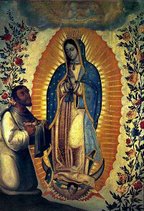
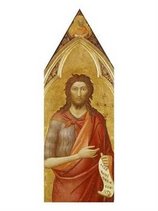


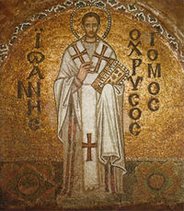
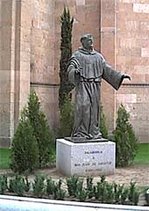

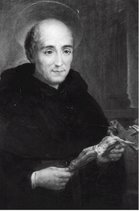
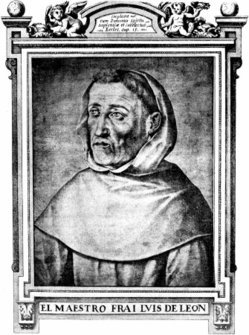
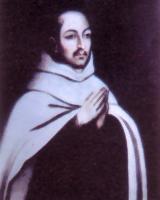


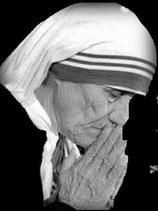
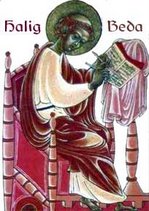
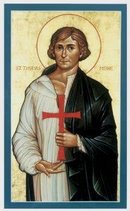
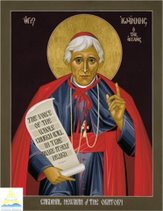




No comments:
Post a Comment